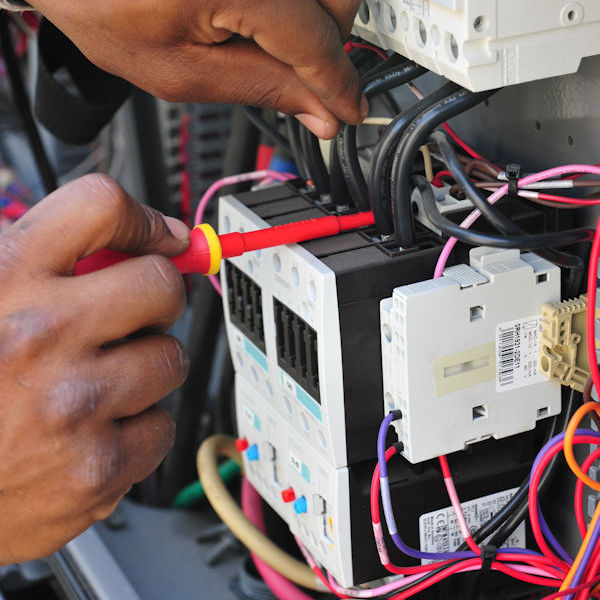
Welcome, dear reader, to this comprehensive guide just for you, a dedicated Level 2 electrician. With the world shifting rapidly towards renewable energy sources, solar power sits at the forefront. In fact, according to the International Renewable Energy Agency (IRENA), solar PV capacity globally reached 651 GW in 2020. So let us embark on this journey together and explore how you can integrate solar energy seamlessly into your skill set.
Understanding Solar Power Basics
To effectively integrate solar power systems and promote sustainable energy, it is important that you fully grasp the basics of how this phenomenal technology operates. Solar panels work by converting sunlight into electricity via photovoltaic cells. These cells utilise the photovoltaic effect to generate a flow of electrons—electricity—that can power a range of domestic and commercial appliances.
The Role of A Solar Inverter
Central to any solar energy system is the solar inverter. This device takes the direct current (DC) electricity generated by your solar panels and transforms it into alternating current (AC), which is used by most household and workplace appliances. Having knowledge about different types of solar inverters and how to install them is crucial for every Level 2 electrician.
Grid-Tied Versus Off-Grid Solutions
There are two main types of solar power systems: grid-tied and off-grid. Grid-tied systems are connected to the local electrical grid while off-grid systems operate independently. Understanding the pros and cons of each system, as well as their unique installation processes, will empower you to offer tailored solutions to your clients.
Importance of Proper Panel Placement
The efficiency of a solar system largely depends on the correct placement of solar panels. They should be installed where they can capture maximum sunlight throughout the day. Factors to consider include geographical location, roof design, shading, and the tilt angle of panels.
Decoding Solar PV System Ratings
As a Level 2 electrician, understanding what the ratings on a solar PV system mean is vital. These ratings provide useful, standardised information about the panel’s power output, efficiency, temperature coefficient, and more, assisting you in choosing the right system for your customers.
Embracing Solar Battery Storage Systems
Battery storage systems are becoming increasingly important for both grid-tied and off-grid solar setups. These systems store excess power generated by the panels for use during periods of low sun exposure. Familiarising yourself with different battery technologies can enhance your expertise in solar energy integration.
Understanding Solar Power Monitoring
Solar power systems often feature monitoring capabilities that allow users to track their system’s power generation and consumption in real-time. Learning to interpret this data and communicate it effectively to clients will make you a more valuable service provider.
Supply and Installation Safety Regulations
The installation of solar PV systems requires strict adherence to numerous safety regulations. This ensures not only safe operation but also maximises system longevity. A thorough understanding of these rules will make sure you provide top quality service while keeping safety paramount.
Waste Management and Recycling Initiatives
Most components of a solar PV system have a lifespan of several decades, but what happens when these components reach their end-of-life? You should familiarize yourself with proper waste management practices and recycling initiatives related to the solar industry.
Navigating Government Incentives and Schemes
Various governments offer incentives to promote the use of renewable energy. Stay updated with current schemes and subsidies that can provide cost savings to your clients. This information can be the deciding factor for clients contemplating a switch to solar power.
Upgrading Your Certifications
Having advanced certifications in solar power systems will not only improve your knowledge but also solidify your credibility. It signals to potential customers that you are a trained professional capable of handling all their solar installation needs.
Staying Ahead of Technology
The solar industry is evolving at a fast pace, thanks to ongoing research and development. Make sure you stay informed about industry advancements, technological innovations and new products on the market to provide up-to-date advice and solutions.
The Power of Community Networking
Networking with other professionals in the industry can provide invaluable perspectives, share experiences, and learn from collective wisdom. Participating in training sessions, workshops, webinars, and conferences can expand your knowledge base and keep you plugged into industry trends.
A Bright Tomorrow
You stand at a pivotal point where traditional energy sources are making way for clean, renewable alternatives. Solar integration is not just a retooling of skills—it represents an embrace of the future. Equipping yourself with this knowledge ensures you navigate this transition smoothly, placing you in bright light ahead.